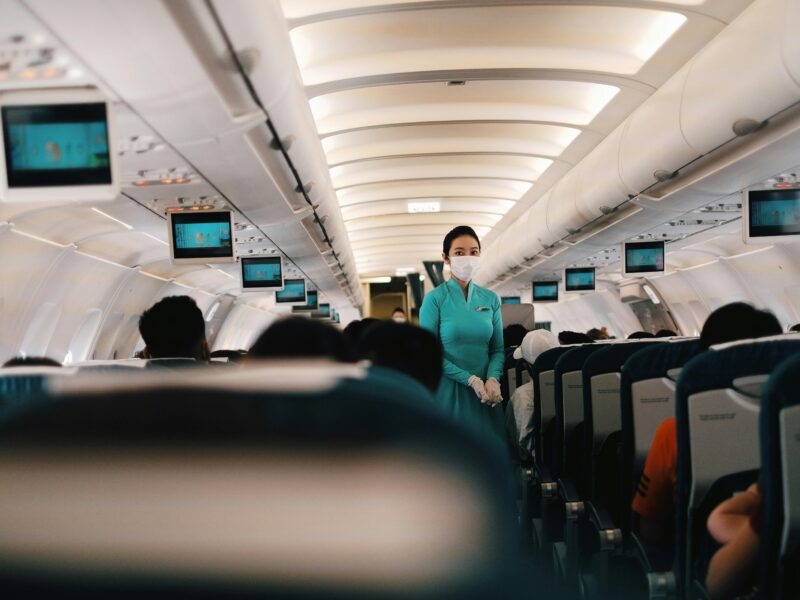Within the vast field of professions, few occupations evoke as much intrigue and fascination as the role of a flight attendant. This profession remains a prominent point of attraction for many job seekers, not just for the of travel but for its focus on service, safety, and personal development. This comprehensive guide aims to provide crucial insight into flight attendant jobs in the United and advice for aspiring job seekers.
Understanding the Role of Flight Attendants
Flight attendants are the ambassadors of their airline, embodying the brand ethos in their every interaction with passengers. Their role is a complex concoction of ensuring the safety of passengers onboard, delivering top-notch customer service, and assisting with in-flight procedures.
Education and Requirements
Entering the profession requires at least a high school diploma or GED, but colleges increasingly offer flight attendant preparatory courses that can give potential candidates a competitive edge. An applicant must be 18 or older and fluent in English, while proficiency in additional languages can provide substantial benefits and opportunities given the international nature of the profession.
Training and Development
Once hired, flight attendants undergo intensive training typically lasting 3 to 6 weeks. The focus mainly lies in safety procedures, handling emergency events, first aid application, and honing interpersonal and customer service skills. This training period is crucial, as it prepares flight attendants for the vast array of scenarios encountered in the air, from medical emergencies to disruptive passengers.
Skills and Competencies
The role of a flight attendant extends beyond just serving meals and demonstrating safety procedures. Key skills include excellent communication capabilities, a positive attitude, flexibility, and the ability to remain calm under pressure. Additionally, possessing empathy, patience, and a dedication to exceptional service is paramount, as the needs and comfort of passengers are always at the heart of the role.
Job Prospects and Career Path
The U.S. Bureau of Labor Statistics estimates the employment of flight attendants to grow by about 17% from 2019 to 2029, a rate far surpassing most occupations. This growth is driven by increased air travel and newer routes, leading to higher demand for these professionals.
Potential for advancement exists within the industry, with experienced flight attendants having the opportunity to move into senior or lead flight attendant roles, supervising the work of their colleagues in-flight. Some flight attendants also transition into recruitment, training, and other corporate roles within the airline industry.
Challenges of the Job
While it holds the promise of exciting locales and diverse experiences, it is crucial to recognize the challenges tied to the job. Shifts can be irregular, weekends, holidays, and nights are typically workdays, and adjusting to different time zones can take a toll on the body. Furthermore, dealing with challenging passengers, coping with in-air emergencies, and handling occasional travel hiccups are all part of the job demands.
Perks and Compensation
Flight attendant jobs, however, come with significant perks. The chance to travel worldwide, often with discounted or free tickets for family members, is a considerable benefit. Most airlines also offer health insurance, retirement plans, and paid time off. Remuneration can vary widely among airlines and is typically accompanied by allowances for meals and accommodation during layovers.
Job Satisfaction
Many flight attendants attest to high job satisfaction, citing factors such as the joy of travel, camaraderie among crew members, and the opportunity to meet and assist a diverse assortment of people across the globe. The job demands a broad array of skills and fosters resilience, which can lead to enriching personal and professional growth.
Preparing for a Career as a Flight Attendant
For job seekers aiming to take flight in this career, active preparation can go a long way – achieving customer service experience, becoming fluent in a second language, and even attending a flight attendant school can enhance hiring prospects. When interviewing, showcasing your interpersonal skills, adaptability, and crisis management abilities are key.
In conclusion, a flight attendant job in the United States offers a unique professional path that combines elements of customer service, safety, teamwork, and cultural competence. It might be challenging and demanding, but the rewards are undoubtedly significant. For those willing to brave the skies, connect diverse people, and embrace the irregularities as part of their work-life, this position offers an ensemble of experiences that few other careers can rival. Embarking on a career as a flight attendant is not just about a job; it’s a passport to an adventurous and fulfilling vocation.




